Pain Theory and Non-Pharmacological Pain Management: The Neuroscience Behind Child Life Interventions - (2024)
-
You must log in to register
- Non-member - $60
- Member - $35
- Student - $15
Pain is one of the most prevalent stressors that pediatric populations face during healthcare encounters (Kuttner, 2010). Certified child life specialists (CCLS) utilize a diverse set of non-pharmacological interventions to manage pediatric pain, but not all CCLS have a thorough understanding of why these interventions are effective (Bandstra et al., 2008). This session will explore pain theory, nociception, and the neuroscience behind non-pharmacological pain management techniques utilized by CCLS.
Suggested Domain: Ethics, Intervention
1.0 PDU
Learning Objective(s):
- Participants will be able to describe the basic foundations of Melzack and Wall’s gate control theory of pain and Melzack’s neuromatrix theory of pain.
- Participants will be able to summarize the basic components of the nociception process (e.g. transduction, transmission, modulation, and perception.)
- Participants will be able to explain how child life interventions utilizing physical input, such as Buzzy, ShotBlocker, or soothing touch, can reduce pain perception.
- Participants will be able to explain how child life interventions utilizing cognitive factors, such as distraction, coached breathing, or cognitive reframing, can reduce pain perception.
Please note: All webinar contents and its certificate will expire on 9/11/2027 regardless of when it is purchased, accessed, or completed. At that point, contents will no longer be available in any form, including as an archive or as a PDU certificate. It is the responsibility of the learner to complete the contents and download and save the certificate for their records prior to 9/11/2027.
Rebecca Davis, MS, CCLS, CTRS-C
Certified Child Life Specialist II
Christus Children's Hospital
Rebecca Davis has worked as a Certified Child Life Specialist at CHRISTUS Children’s level-III pediatric trauma center/emergency department in San Antonio, TX since 2021. That same year, she completed her clinical internship at Riley Hospital for Children in Indianapolis, IN. Rebecca received her MS in Child Life from Texas Woman’s University and her BAAS in Early Childhood Education from Texas A&M University-San Antonio. Wanting to play a more active role in the care of CHRISTUS Children’s trauma patients, she successfully advocated to become the psychosocial representative on her hospital’s trauma committee, where she initiated and is now co-leading a process improvement project to improve pain management practices for patients presenting to the ER with bone fractures. Rebecca’s areas of academic and clinical interest are centered around the neuroscience behind non-pharmacological pain management, emotional regulation, and childhood trauma. She has also proudly earned the reputation of "theory nerd" from her coworkers due to her passion for both well-known and lesser-known classical theories that form the foundation of Child Life practice. Outside of work, Rebecca spends her time swimming laps, practicing yoga, and trying to avoid the Texas heat!
